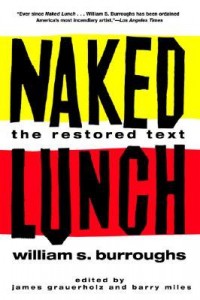 Title: Purge (Goodreads)
Title: Purge (Goodreads)
Author: Sofi Oksanen
Translator: Lola Rogers
Published: Grove Press, 2008
Pages: 390
Genres: Literary Fiction, Thriller
My Copy: Audiobook
Buy: Amazon, Book Depository, Kindle, Wordery (or visit your local Indie bookstore)
I love a good literary thriller but I rarely find one that really impresses me. There is something about taking genre fiction and using it to explore social issues. If done right it provides us with a fast paced narrative full of thrills but will also leave the reader with plenty to think about. A recent example that comes to my mind is The 7th Function of Language by Laurent Binet. Then there is Purge. The 7th Function of Language was able to blend literary theory in a fast paced plot, while Purge takes more an approach to explore the complex social and political issues facing Estonia after the Soviet collapse.
Aliide Truu is an elderly woman living in the Estonian countryside which keeps her isolated from the outside world and all the tragic events happening around her. One day she discovers another woman looking into her kitchen window, who turns out to be Zara, the granddaughter of her sister Ingel. Zara is on the run from the Russian mafia, after they forced her into the sex trade. Purge is an unflinching novel that explores the obstacles women face in this rapidly changing society.
“Those who poke around in the past will get a stick in the eye.”
Both women have their past and secrets which they rather not discuss. For Aliide, an escape from the current political issues felt like only answer. A feeling that feels all too familiar with the current state of the world. However what we truly know about Aliide is still surrounded in mystery. It is rather Zara’s life that is the major focus, exploring the corruption and the sickening world of human trafficking. All of which feels like a direct result of that power vacuum in the country.
“She found it hard to believe that there would be any bold moves, because too many people had dirty flour in their bags, and people with filthy fingers are hardly enthusiastic about digging up the past.”
Setting the novel in 1992 allows the reader to explore an Estonia that was going through many recent political changes. In the late 1980s Estonia saw many political arrests for crimes against humanity. This brought great resistance against the Russification of Estonia, especially with the collapsing Soviet Union, which lead to their eventual independence in 1991. The country’s social and political values were changing, for better or for worse, this lead to the emerging Russian mafia.
The bleak exploration into Estonian life from the perspective of two women with different pasts tends to remind me of the Soviet novels I have read in the past. Novels that look at both political and social issues that a country faces. For Sofi Oksanen, it allowed her to focus on the hardships facing women of the country as well. The style and fast paced narrative of Purge reminds me specifically of the Aleksandr Solzhenitsyn novel In the First Circle. Both exploring the effects of the Soviet era on the people within the narratives. In the First Circle focuses on life during the Soviet era while Purge is looking more at the after effects.
I have read Sofi Oksanen before and found her to be very bleak. The novel When the Doves Disappeared just felt dense and I found myself struggling to get through it. It is a novel I would love to dip into again at some point, but I think Purge offered me much more. With Purge, I have a new found appreciation for Sofi Oksanen and the novel motivates me to read more from her. Purge is a novel I highly recommend, but be warned, Baltic literature tends to be very bleak.

 Title: Encyclopedia of a Life in Russia (
Title: Encyclopedia of a Life in Russia ( Title: Naked Lunch (
Title: Naked Lunch (